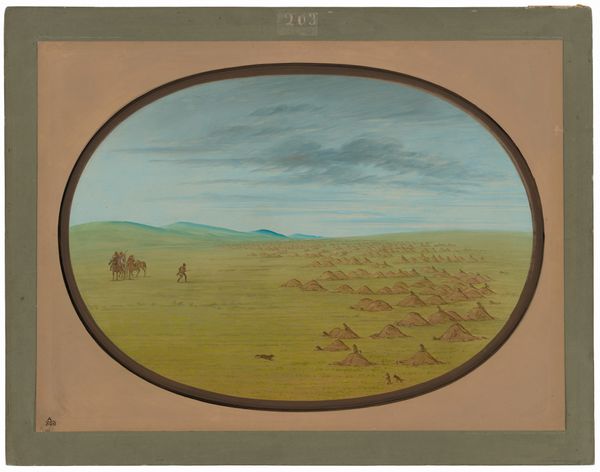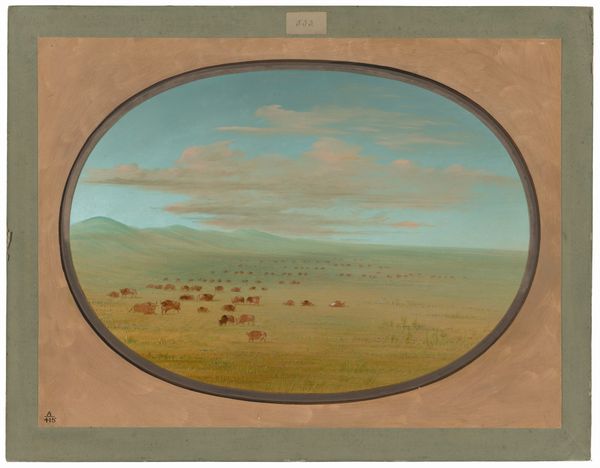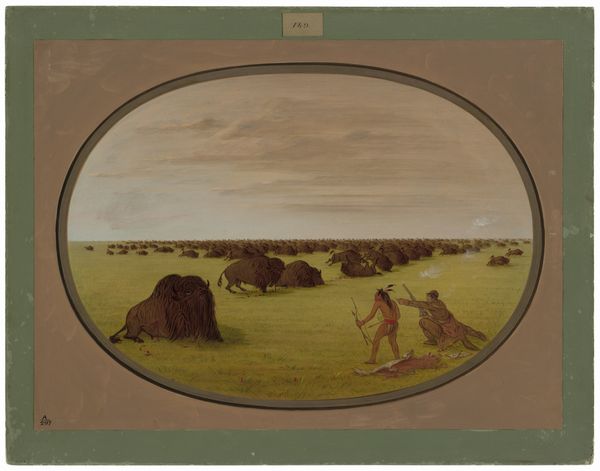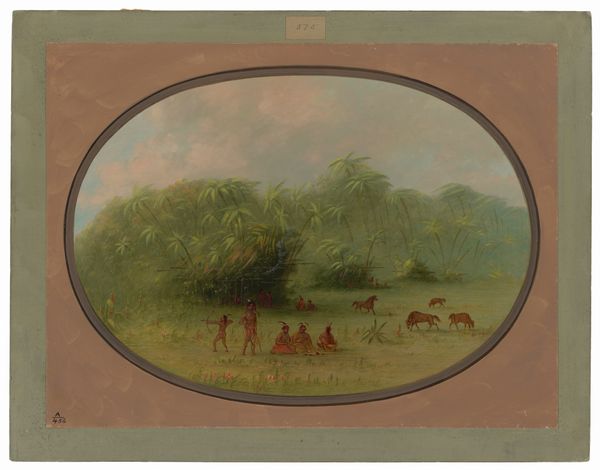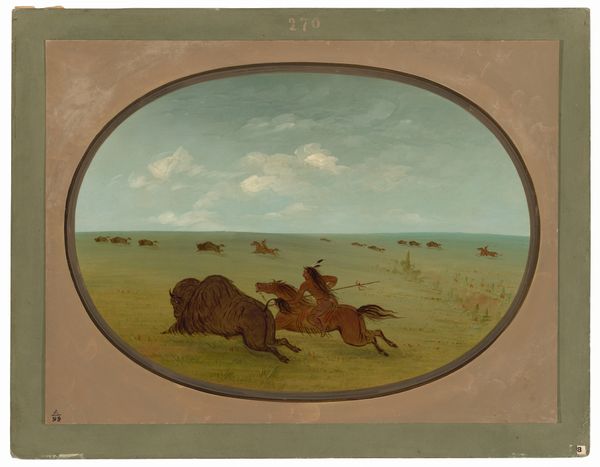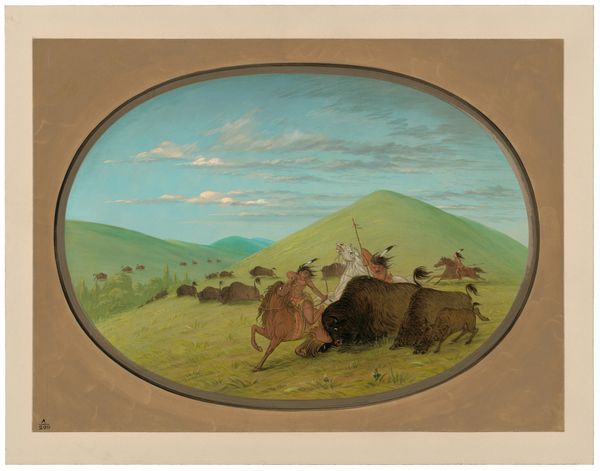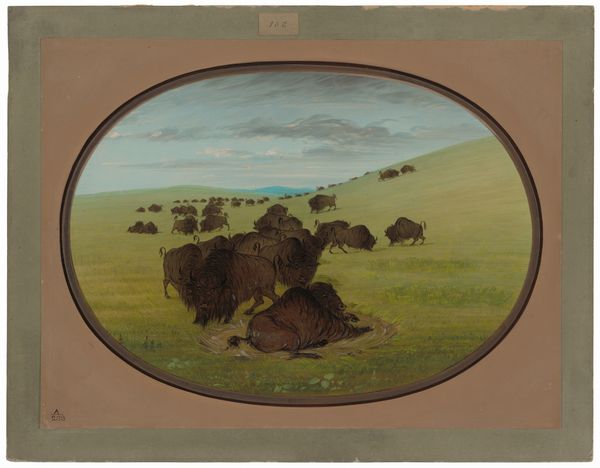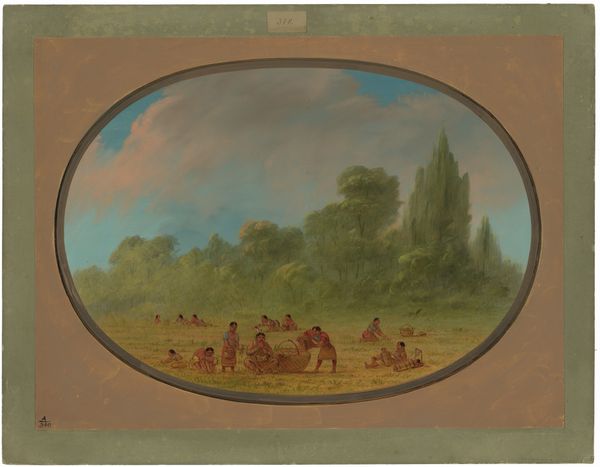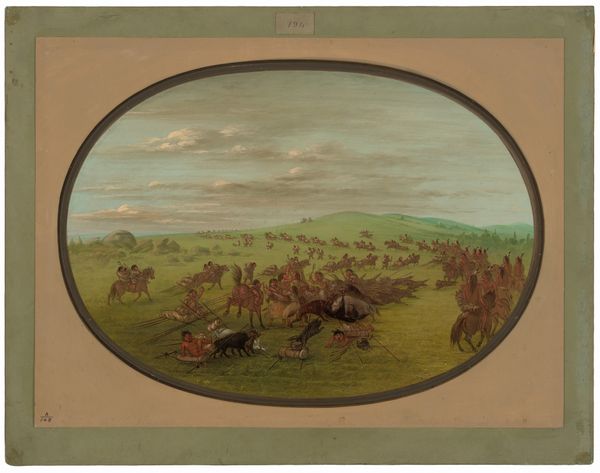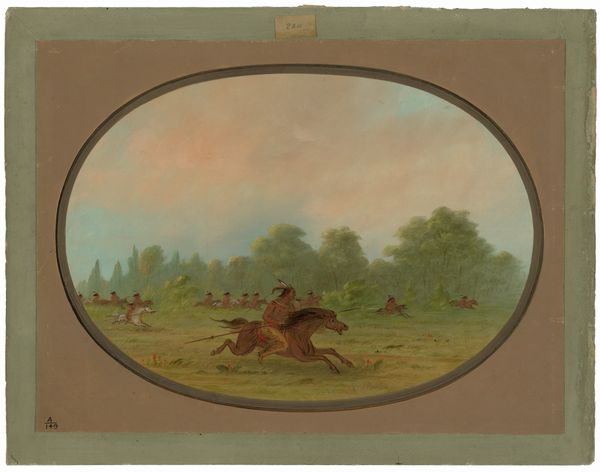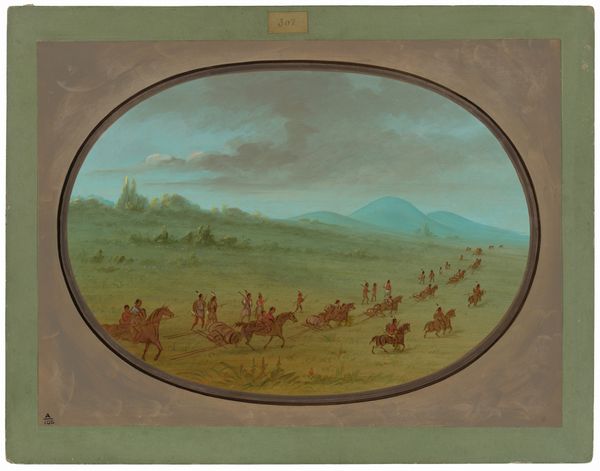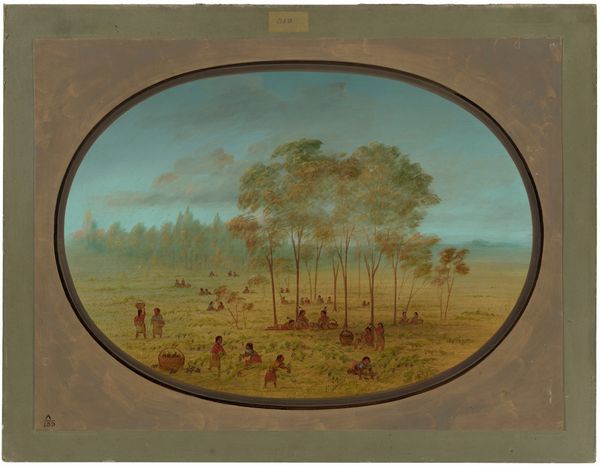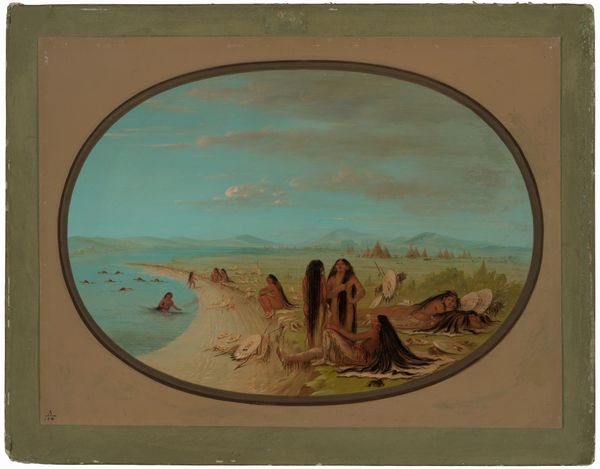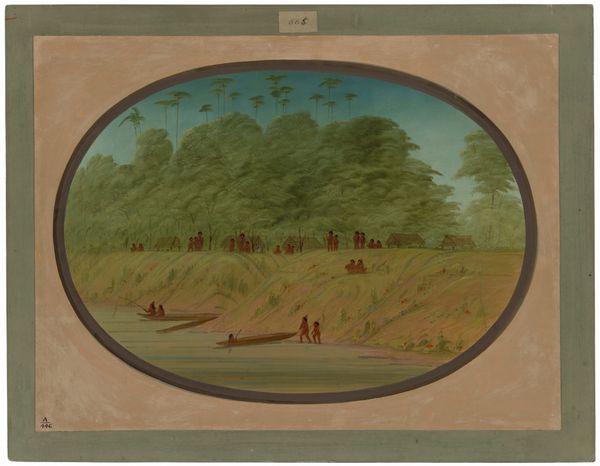
painting, gouache
#
water colours
#
narrative-art
#
painting
#
gouache
#
landscape
#
figuration
#
oil painting
#
watercolor
Dimensions: overall: 46.6 x 62.1 cm (18 3/8 x 24 7/16 in.)
Copyright: National Gallery of Art: CC0 1.0
George Catlin painted Catching Wild Horses - Pawnee with oil on canvas, likely in the 1830s. Catlin was interested in depicting the customs of Native American tribes, and in this painting, he's focused on the capture of wild horses. The painting’s material reality speaks to a clash of cultures and economies. The canvas and oil paints were likely manufactured in Europe or the Eastern United States, reflecting the industrial production that was transforming Western society at the time. Catlin, as an artist, also represents a particular kind of labor – that of observation, documentation, and representation. The act of catching and taming wild horses was crucial for the Pawnee, providing them with transportation, a means of trade, and a symbol of status. The painting immortalizes this practice, and, in doing so, invites us to consider the value and the labor involved in both the making of the artwork, and the way of life it depicts. Ultimately, this artwork underscores the importance of considering both material and context to gain a richer appreciation of its cultural significance.
Comments
No comments
Be the first to comment and join the conversation on the ultimate creative platform.
